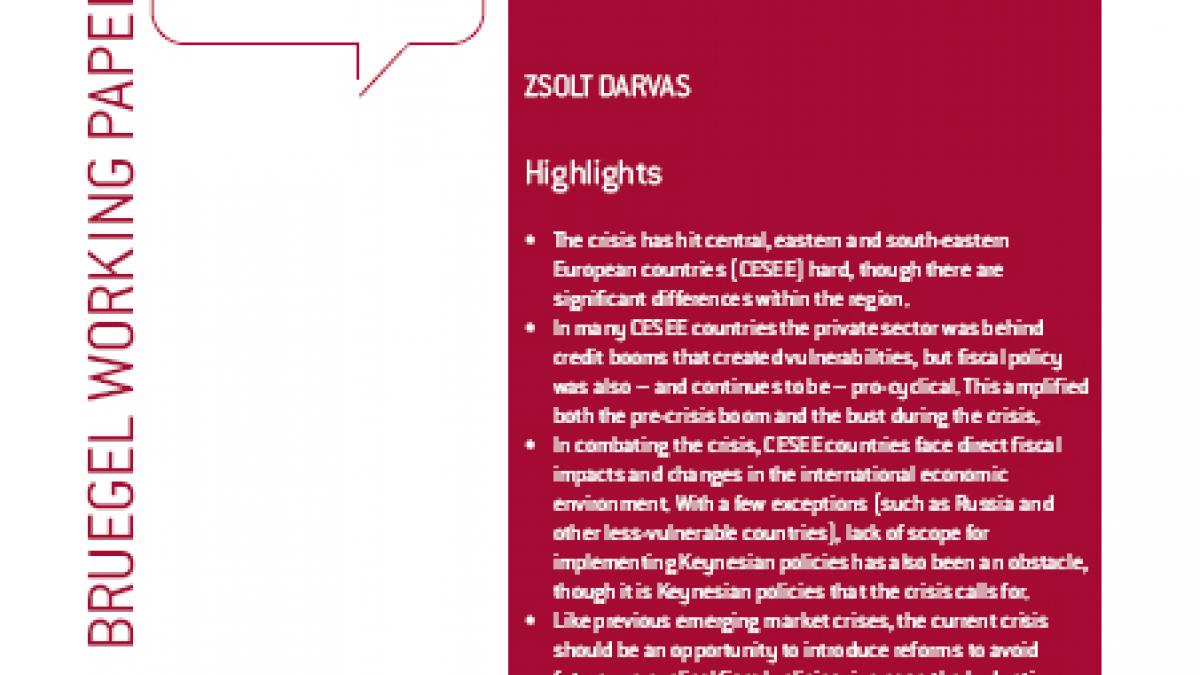The impact of the crisis on budget policy in Central and Eastern Europe

After drawing some lessons for fiscal policy from previous emerging market crises, Zsolt Darvas concludes with some thoughts on the appropriate policy response from a more normative perspective. The key message of the paper is that the crisis should be used as an opportunity to introduce reforms to avoid future pro-cyclical fiscal policies, to increase the quality of budgeting and to increase credibility. These reforms should include fiscal responsibility laws comprising medium-term fiscal frameworks, fiscal rules, and independent fiscal councils. When fiscal consolidation is accompanied by fiscal reforms that increase credibility, non- Keynesian effects may offset to some extent the contraction caused by the consolidation.



